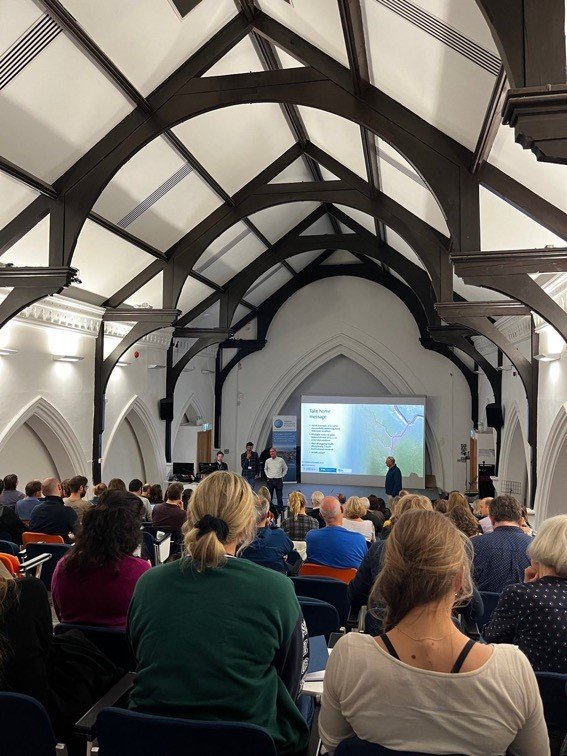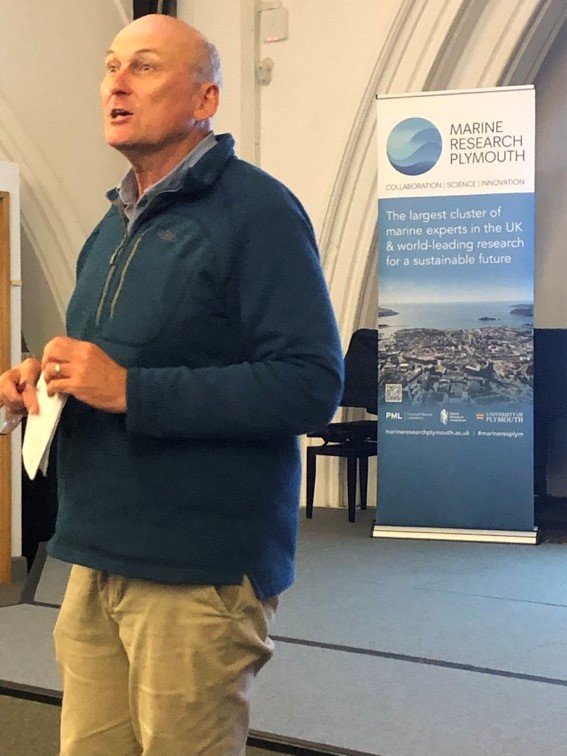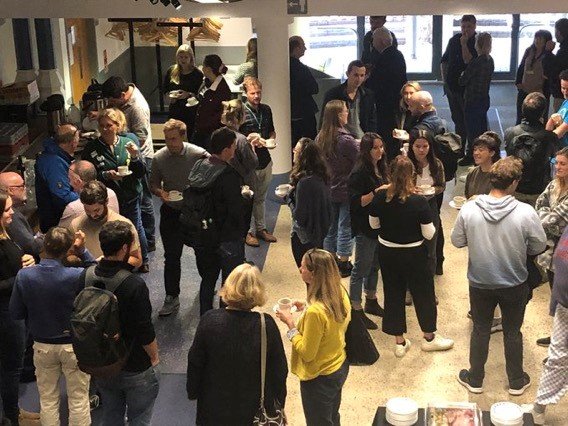What has the Ocean ever done for us? Plymouth Research Dialogue series launches.
Over 100 colleagues from Marine Biological Association, Plymouth Marine Laboratory and the University of Plymouth gathered at the University for the first in the Plymouth Dialogue series on Wednesday 19 October.
Entitled What has the Ocean ever done for us? Professor Richard Thompson welcomed the audience of established and early career researchers, reiterating the purpose of the Dialogues was to enable, and enhance, a strong culture of communication and collaboration across the Plymouth marine science community.
A programme of 10 presentations from academic colleagues covered three sessions around carbon capture and seagrass ecosystems; plankton and climate-driven deoxygenation; plastic pollution and the fishing industry, and biodiversity benefits and challenges from artificial structures such as a Living Sea Wall and offshore windfarms. Projects of global importance that Plymouth are participating in were highlighted, such as the Ocean Biomolecular Observing network (OBON), whilst the pitch from Dr Angus Atkinson particularly illustrated how Plymouth’s three labs – Marine Research Plymouth – are already co-authoring on many papers and certainly world-leading as a team when it comes to reporting on the health of the ocean. After each set concluded, the panel of speakers took questions from the audience, and very soon other connections were being made!
The conversations continued at an informal reception of wine and nibbles after the programme concluded.
Ollie Thomas, a PhD student funded by Marine Research Plymouth enjoyed presenting his work on intertidal seagrass meadows at this inaugural event. He said, “Marine Research Plymouth has allowed me to take full advantage of the expertise and resourced available at the University of Plymouth, Plymouth Marine Laboratory and the Marine Biological Association, enriching my PhD. I love being part of such a great and utterly Plymouth-based project.”
Professor Steve Widdicombe, moderated the first set of talks and summed up the event. “A fantastic showcase of marine science from across Plymouth's marine research community. I never cease to be impressed by the quality and breadth of science being done in this amazing city.”
Dr Louise Firth, concurred. “Couldn’t have said it better myself. Plymouth truly is Britain’s Ocean City!”
Programme : What has the ocean done for us?
Welcome – Professor Richard Thompson
Vassilis Kitidis - Quantifying Ocean CO2 uptake
Daniel Conley - Physical and biological controls in seagrass ecosystems
Oliver Thomas - The organic carbon storage potential of intertidal seagrass meadows in the Tamar Estuary, Southwest England
Questions: Moderator | Professor Steve Widdicombe
Astrid Fischer - The Ocean Biomolecular Observing Network (OBON)
Angus Atkinson - Plymouth as a centre of excellence for plankton science
David Sims - Tracking impacts of climate-driven deoxygenation, warming, marine traffic and overfishing on oceanic predators
Holly Niner - Why and how should we care about the deep sea?
Questions: Moderator | Dr Michael Cunliffe
Louis Firth - Plymouth Living Seawalls Project
Steve Watson - The expansion of offshore windfarms: implications for ecosystem services
Amanda Burton – INDIGO Project
Questions and Round up | Professor Richard Thompson



